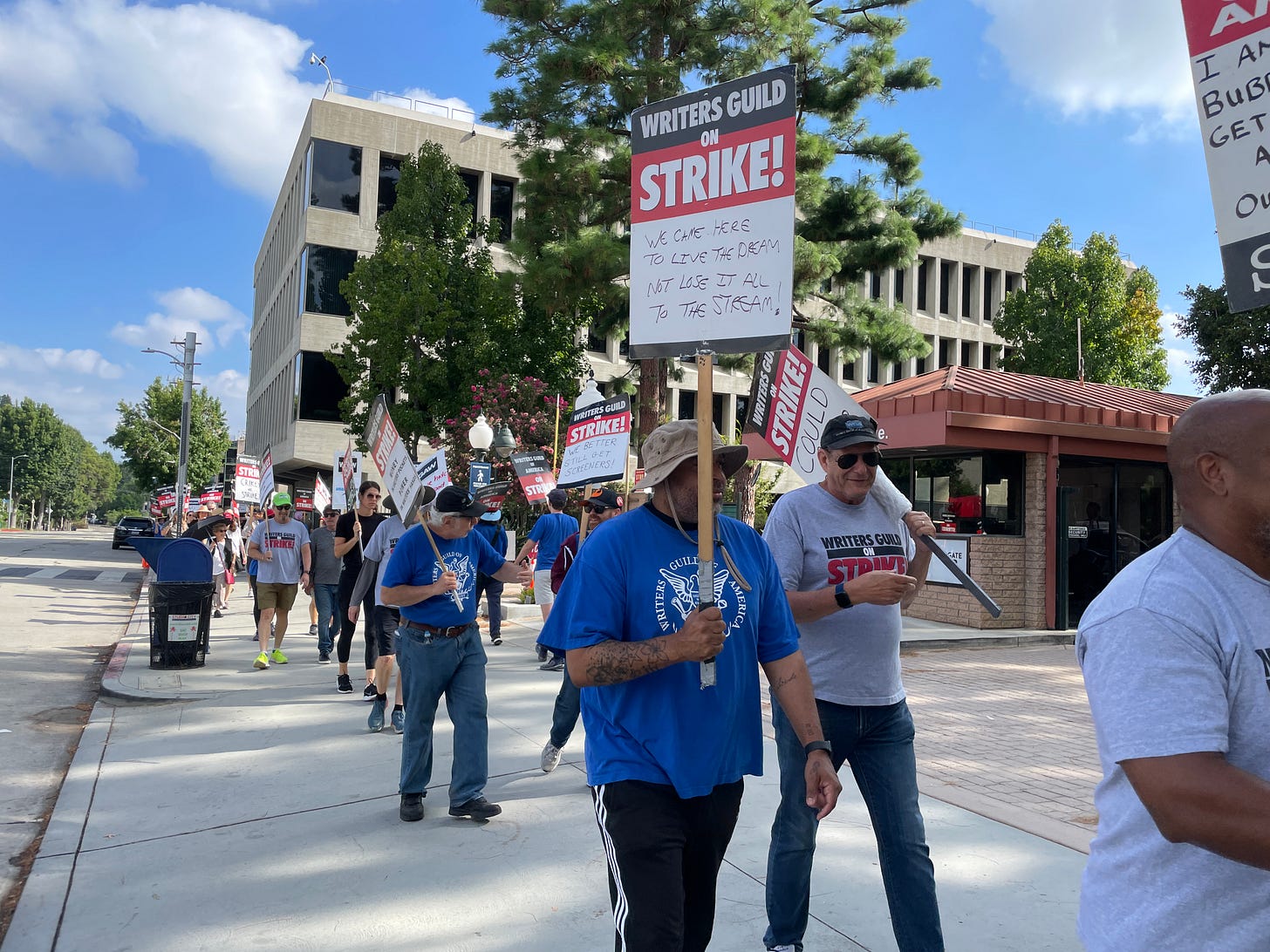Why Mini-Rooms Are a 'Waste of Money,' According to One Emmy Winner
Our anonymous top showrunner is back with a new essay

So it’s confirmed: the Writers Guild and Alliance of Motion Picture and Television Producers are planning to get back in the negotiating room starting Wednesday, said the guild this morning.
In the meantime… mini-rooms, pre-greenlight room, development room. Whatever you want to call them, writers seem to uniformly hate them.
You may recall our Anonymous Emmy-Winning Showrunner, who last month lamented the death of trust in Hollywood. This writer is back with a new essay, this time on the supposed scourge of mini-rooms, which are, in their view, “about as indicative of whether a show will be good as an MRI is indicative of cancer and how to treat it: You get some useful information, sure, but not the complete picture.”
Now, there are different reasons why studio execs like — dare I say love — pre-greenlight rooms. For some, it’s a wonderful way to put off Making A Decision. For these execs, decisions are baaaad. People get fired for making decisions. But no one has ever gotten fired for not making a decision. So decisions are to be avoided at all costs. And if they can’t be avoided entirely, at the very least, they can be postponed. Enter: The pre-greenlight room. I mean, it’s in the name itself: it’s writing — and make no mistake, it’s WRITING whether scripts are produced or not — that is done before a decision to greenlight a series is made. By ordering a pre-greenlight room instead of a series, you can postpone that pesky decision by months if not years. And who knows? By the time that “mini-room” has finished its work, maybe the cultural and/or business sands have shifted such that you don’t even have to decide whether to greenlight the darn thing.
“But,” you may ask, “this sounds like the waste of a lot of dollars for studios that claim to be focused, über alles, on the bottom line.” Excellent point. I have two responses. First, in my experience, there are two types of dollars: Dollars studios don’t mind spending and dollars they would rather die than spend. (See, e.g., CEO pay vs. WGA demands.) Clearly, studios don’t think that pre-greenlight rooms are a waste of money. That’s absolutely their prerogative. After all, the one who pays the piper calls the tune.
But here’s the thing...
Pre-greenlight rooms ARE a waste of money. They’re a waste of money because they don’t do the very thing they’re supposed to do. Theoretically, the pre-greenlight room’s purpose is to generate the material that will enable the network/streamer to make the decision of whether to order a television show. And that decision is based on whether the show will be any good — stop laughing! — based on the material generated by the pre-greenlight room.
Read the rest at The Ankler, for paid subscribers. Writers, agree with our contributor here? Studio execs, what say ye? Very curious to hear your takes on this take. Talk to me: elaine@theankler.com.
Today in Strike News
After much controversy over the three talk shows’ decisions to return during the strike, The Drew Barrymore Show, The Jennifer Hudson Show and The Talk are all delaying their upcoming seasons, which were set to get back into gear on Monday. (NPR)
The AMPTP has attempted to maintain a quiet, fortified aura during the strikes, but in recent weeks, Netflix head Ted Sarandos had reportedly grown frustrated with the studio association, even mentioning the idea that the streamer would leave the AMPTP to go after its own deal. (The Hollywood Reporter)
Now that the WGA and the studios are returning to the negotiating table, Bill Maher has also opted to reverse course on his decision to return to Real Time. “My decision to return to work was made when it seemed nothing was happening and there was no end in sight to this strike,” Maher wrote in a post on X. “Now that both sides have agreed to go back to the negotiating table I’m going to delay the return of Real Time, for now, and hope they can finally get this done.” (The Hill)
Talk shows hosts thrive on making viewers feel they’re a friend showing up on their TV screen for an hour each night. But the recent Barrymore, Maher, and Jimmy Fallon scandals have illuminated one inescapable fact: “Your favorite show is somebody else’s workplace.” (New York Times)
Directors, often overlooked in favor of eyeball-generating star actors, have had to conduct one-person press tours amid the actors strike, a welcome change for some despite the unwelcome timing. “Celebrity is always going to sell more than a director,” says David Gerstner, a professor of cinema studies at City University of New York. “But it is a moment in which directors are being given the opportunity to shine, to be the centerpiece. It’s just unfortunate that it’s under these circumstances.” (New York Times)
In lieu of scripted content this fall, ABC will be simulcasting an additional 10 Monday Night Football games that were originally only set to air on ESPN. (AP)
Gen Zers, the U.S.’s most pro-union age group, have been on the front lines of the strike, trying to save their careers just as they’re getting started. “We’re fighting for our future,” 24-year-old screenwriter Jack Lawler says. “As the world burns around our ears, I think that we haven’t really had an ability to dream without fear of economic collapse, ecological decay, global nuclear conflict, political destabilization… This labor fight is no different. I’m fighting to have a career, not to just be a part of one-off projects. It’s the only thing that I wanna do.” (Huffington Post)
Picket Sign of the Day
The view outside the taping of The View at ABC Studios in New York on Monday.
Additional reporting for Today in Strike News by Matthew Frank.
Disclosure: Elaine Low is an inactive member of SAG-AFTRA.





